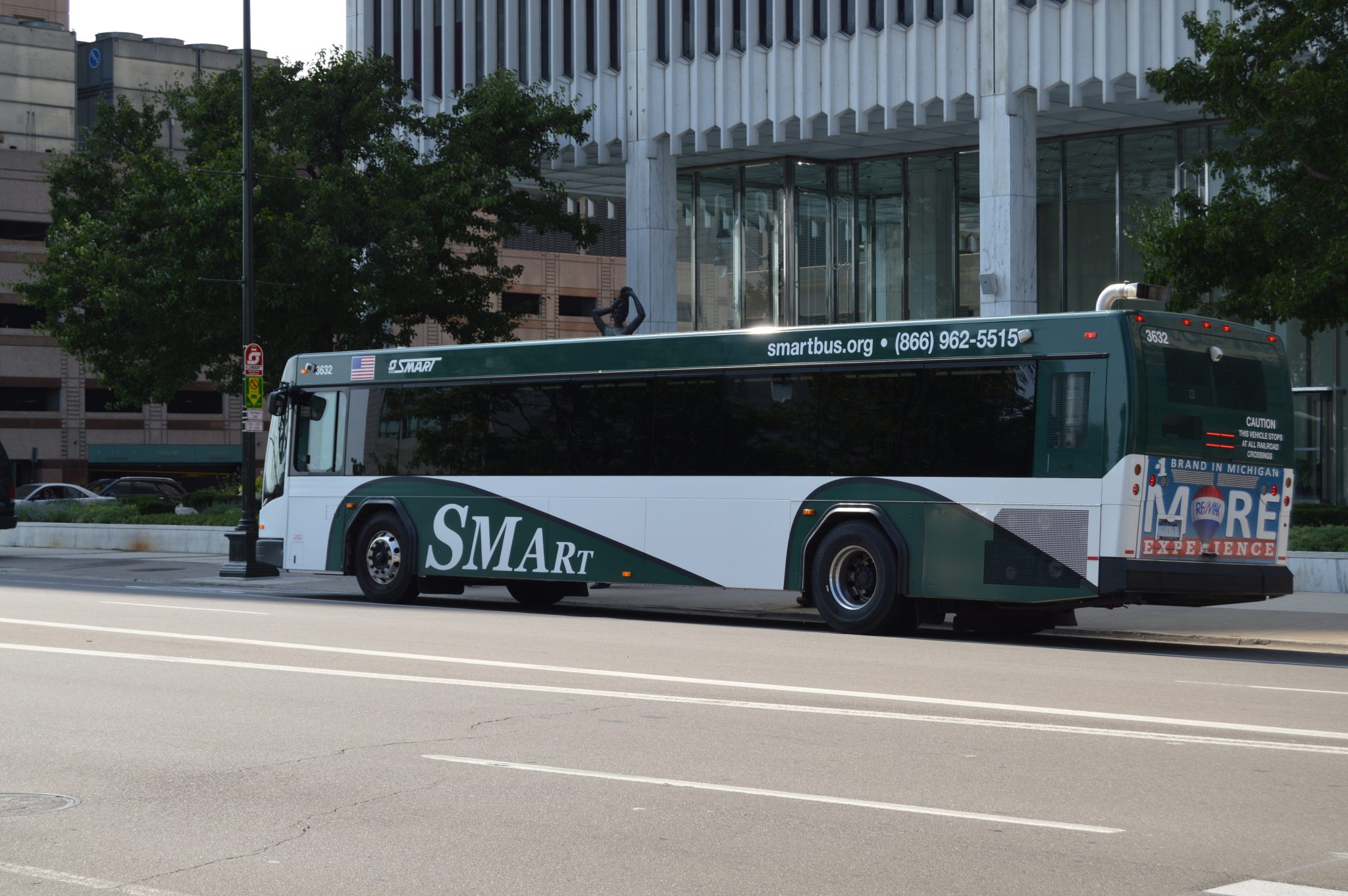Auburn Hills to vote on whether to opt out of SMART
The City Council is planning to ask voters to fund a weekday-only transportation service that would just be for seniors and adults with disabilities.

Correction: This story has been updated to clarify cost breakdowns for Auburn Hills’ proposed transit system. The city would pay for projected costs with a .5 mill tax for residents, which would cover $382,000 annually plus $300,000 in upfront costs.
Auburn Hills City Council will be voting on a resolution to opt out of Detroit’s suburban bus system – SMART – at the council’s Monday meeting. At the same meeting, the City Council is planning to vote on ballot language to fund a replacement for SMART. The city is planning to ask voters to fund a weekday-only transportation service that would just be for seniors and adults with disabilities. This would mean that bus service for able-bodied people under the age of 60 would be eliminated in Auburn Hills.
Listen: Transportation Riders United Executive Director Megan Owens talks about Auburn Hills’ move toward opting out of SMART.
“I really wish the SMART team could have gotten their act together,” said councilmember Eugene Hawkins, III in a Feb. 7 council meeting. The city said it faced communication issues and vehicle maintenance delays while dealing with SMART.
“I understand what the city is saying, that they have to vote against [SMART] because of the dollars and cents,” continued Hawkins. “But there’s a human aspect that I don’t think we’re taking into consideration. So that’s going to be rough. It’s gonna be a bad day for us.”
Auburn Hills pays $65,000 per year and residents pay a little under 1 mill in taxes for SMART bus services, which include regular SMART buses, FAST buses, senior shuttles and more. According to slides presented at a council workshop on Feb. 7, if the city does opt out of SMART and create a bus system just for seniors and disabled adults, it could pay for projected costs with a .5 mil tax for residents which would cover $382,000 annually plus $300,000 in upfront costs.
Transportation advocates are worried that if Auburn Hills opts out it will create more holes in an already fragmented bus system. Transportation Riders United Executive Director Megan Owens worries about people who need to get to Great Lakes Crossing.
“That’s the one spot where transit connects Southeast Michigan up to the Flint service. And obviously to probably thousands of entry-level jobs,” says Owens.
Most voters in Auburn Hills support the SMART bus system. In 2018, 74% voted yes to renew the millage to fund SMART. But while a vote from residents is required to opt into and renew SMART millages, all it takes to opt out is a vote from City Council. Rochester Hills resident and Auburn Hills bus rider Thomas Yazbeck doesn’t think that’s fair.
“I really think that this decision should be made by the voters of Auburn Hills because they’re the ones that are paying the millage,” says Yazbeck.
SMART Deputy General Manager Robert Cramer says the bus system’s hands are tied.
“For Auburn Hills, we’ve had a chance to make sure that they understand the services we provide there. And we respect their ability to make these decisions on their own,” says Cramer.
Auburn Hills Mayor Kevin McDaniel declined WDET’s request for an interview but said in a statement: “… I’m confident that the City Council will do what it feels is in the best interest of the residents of the City of Auburn Hills.”
The City Council meeting will be taking place in person at Auburn Hills City Hall, 1827 N. Squirrel Road in Auburn Hills and starts at 7 pm.., Monday, Feb. 21.
Trusted, accurate, up-to-date.
WDET strives to make our journalism accessible to everyone. As a public media institution, we maintain our journalistic integrity through independent support from readers like you. If you value WDET as your source of news, music and conversation, please make a gift today.

